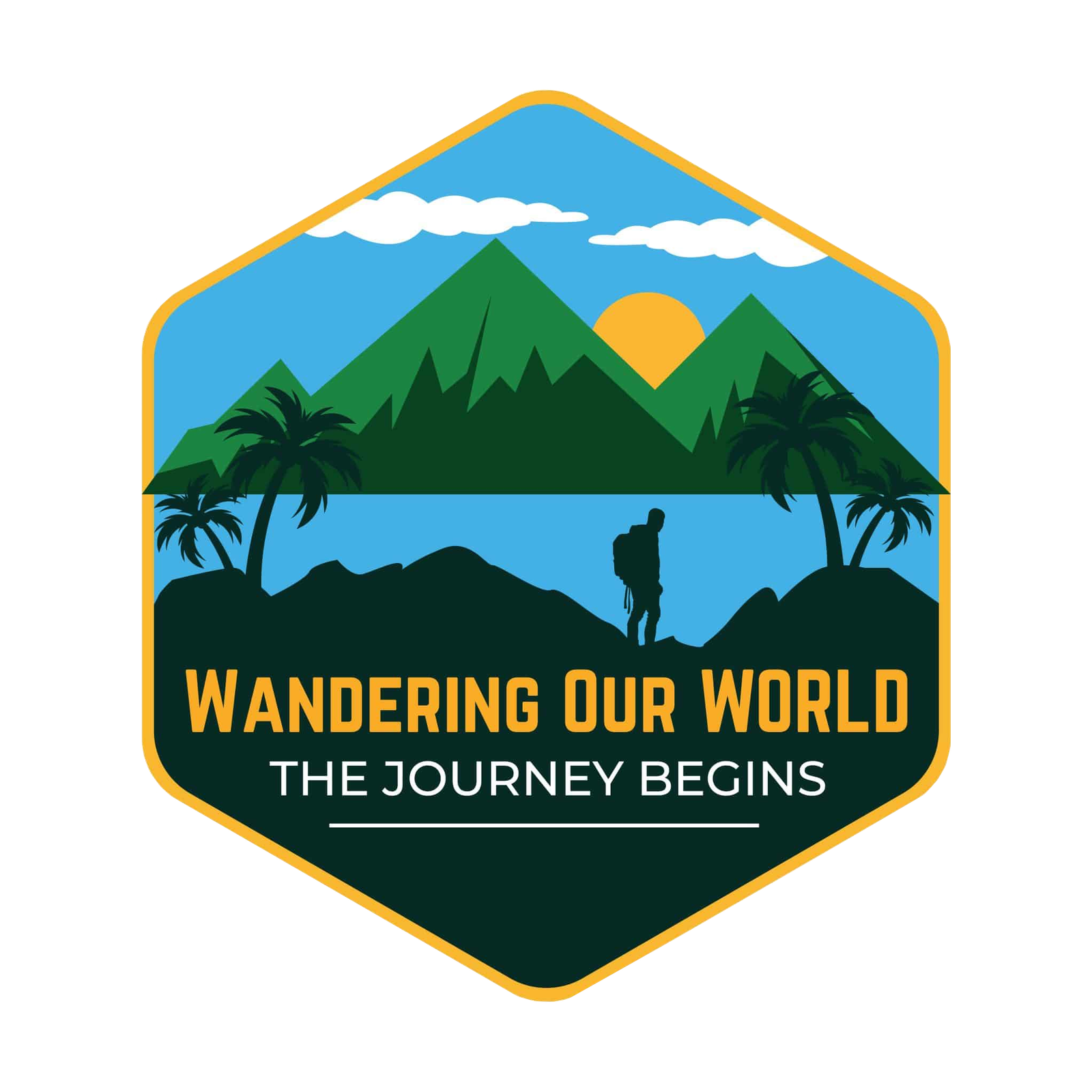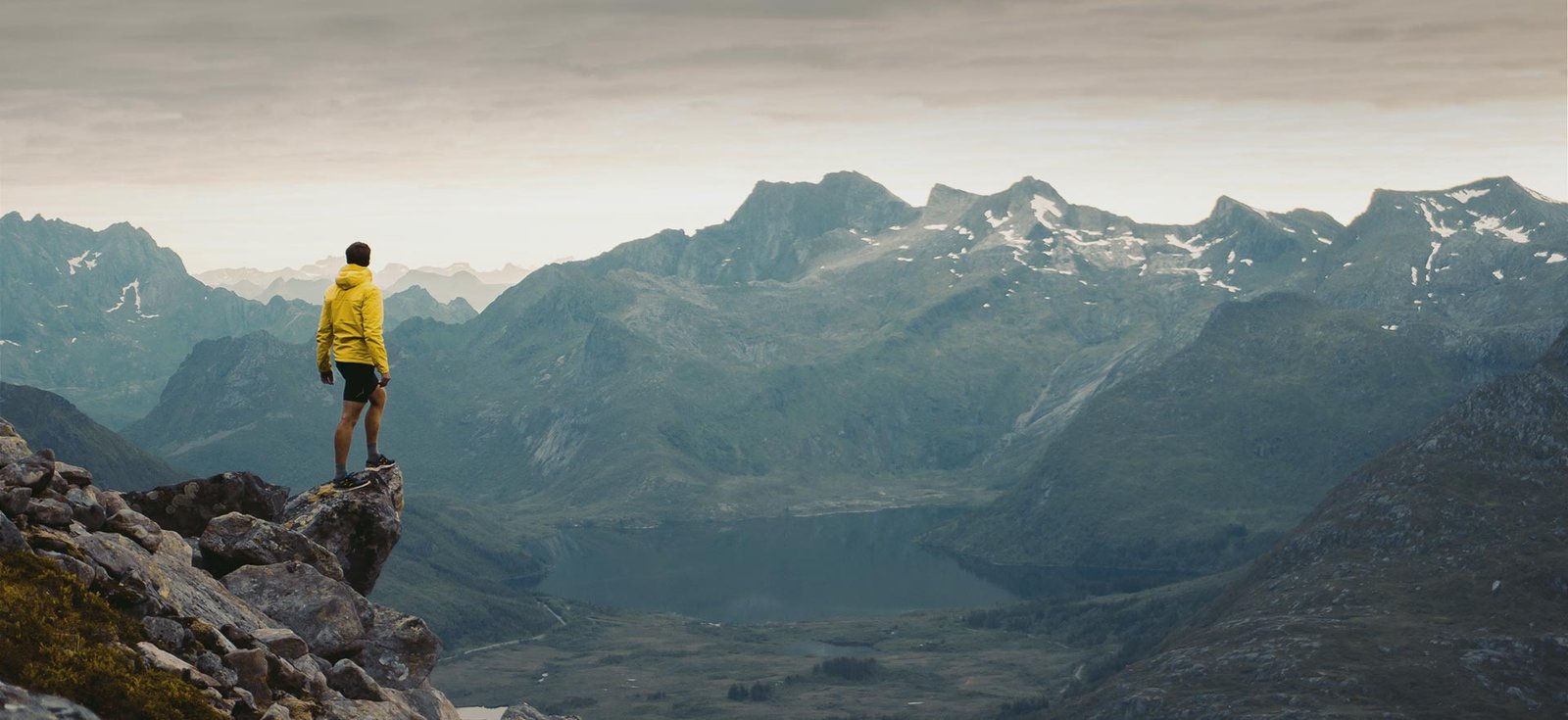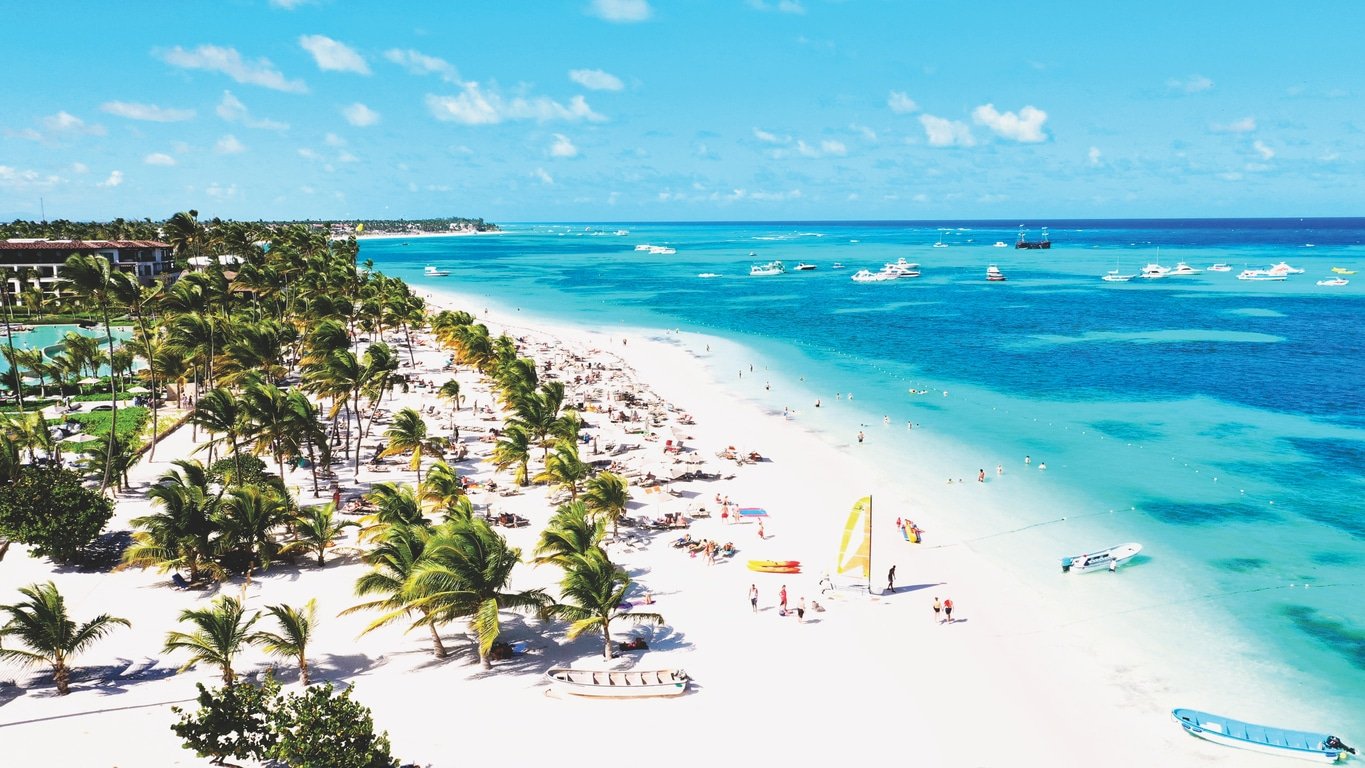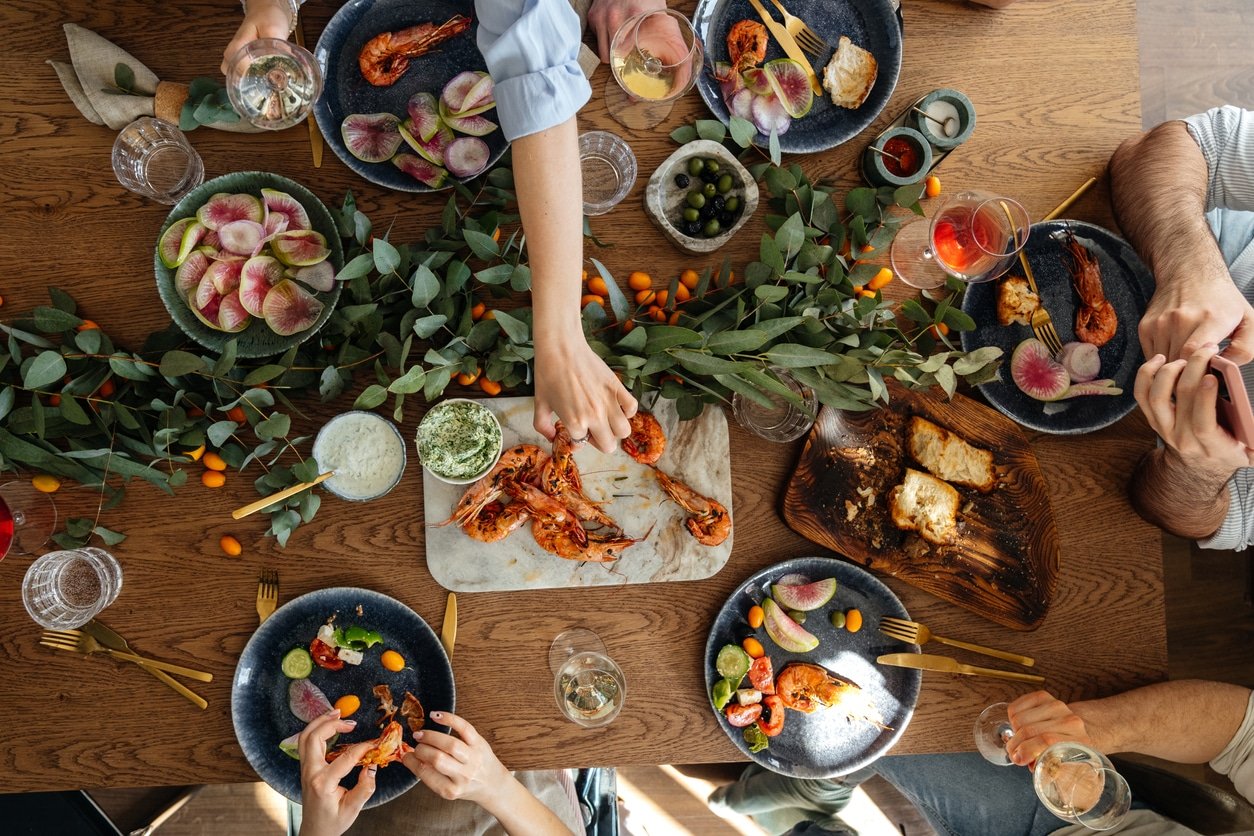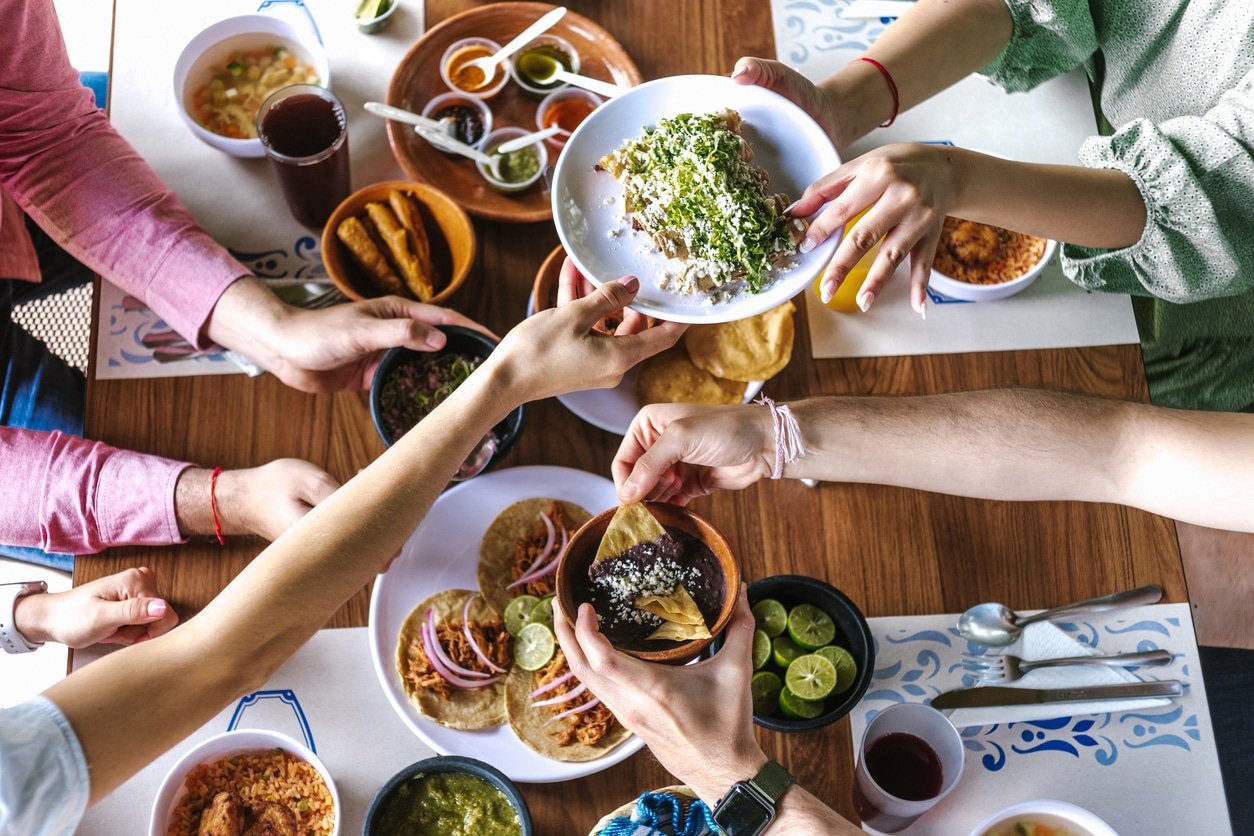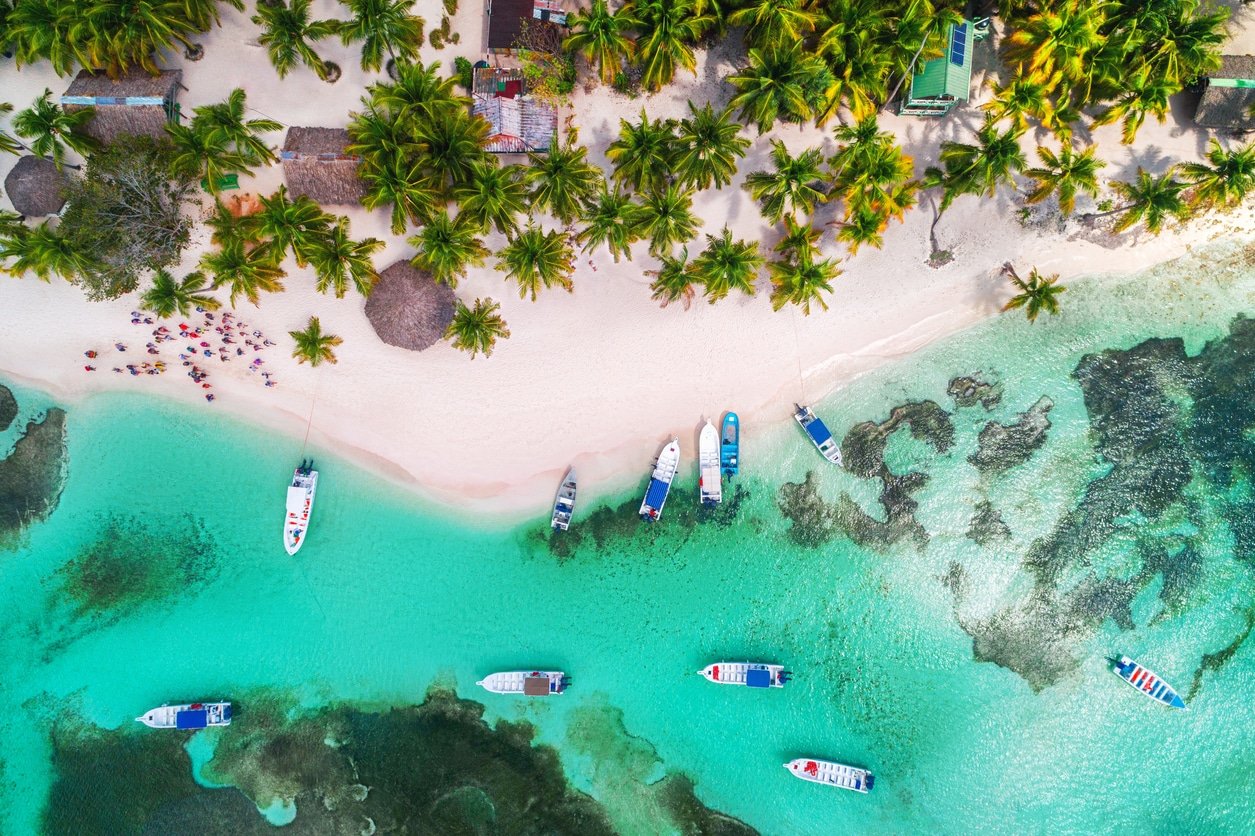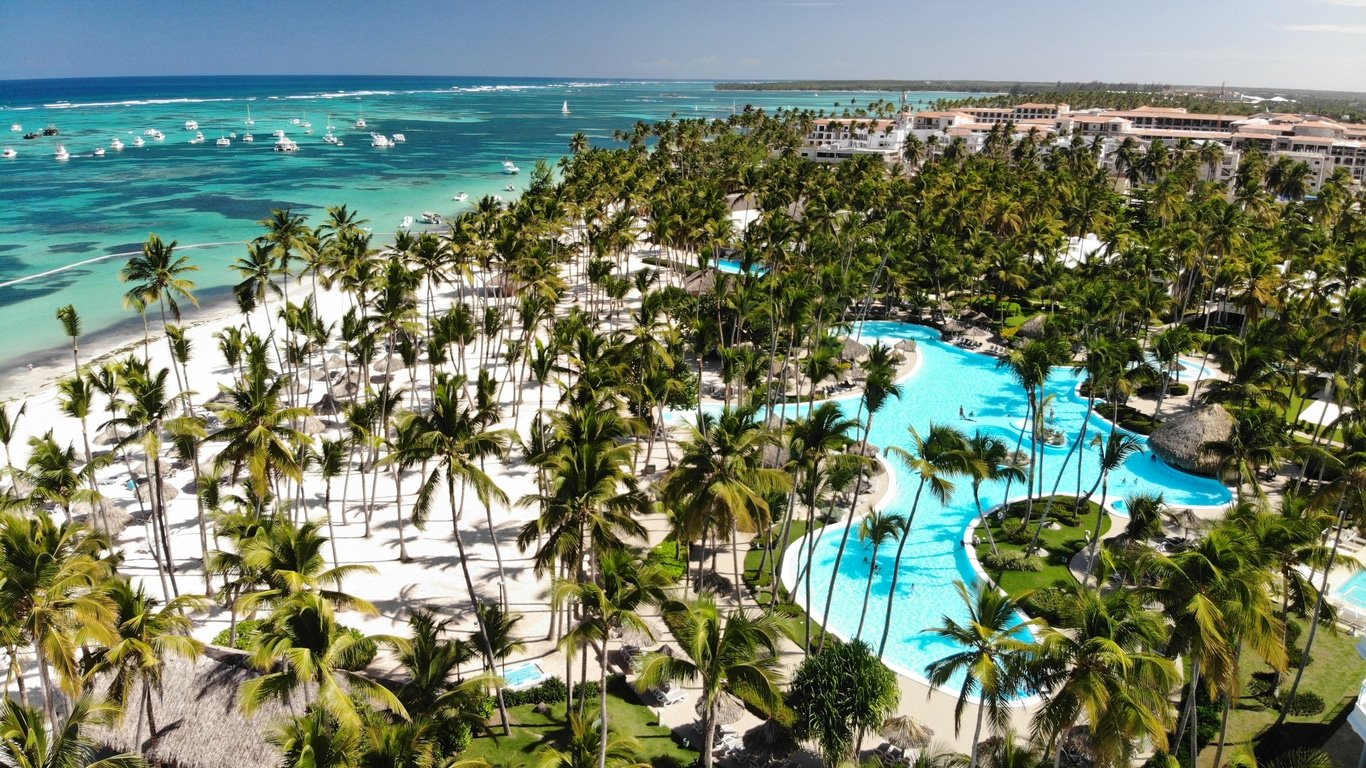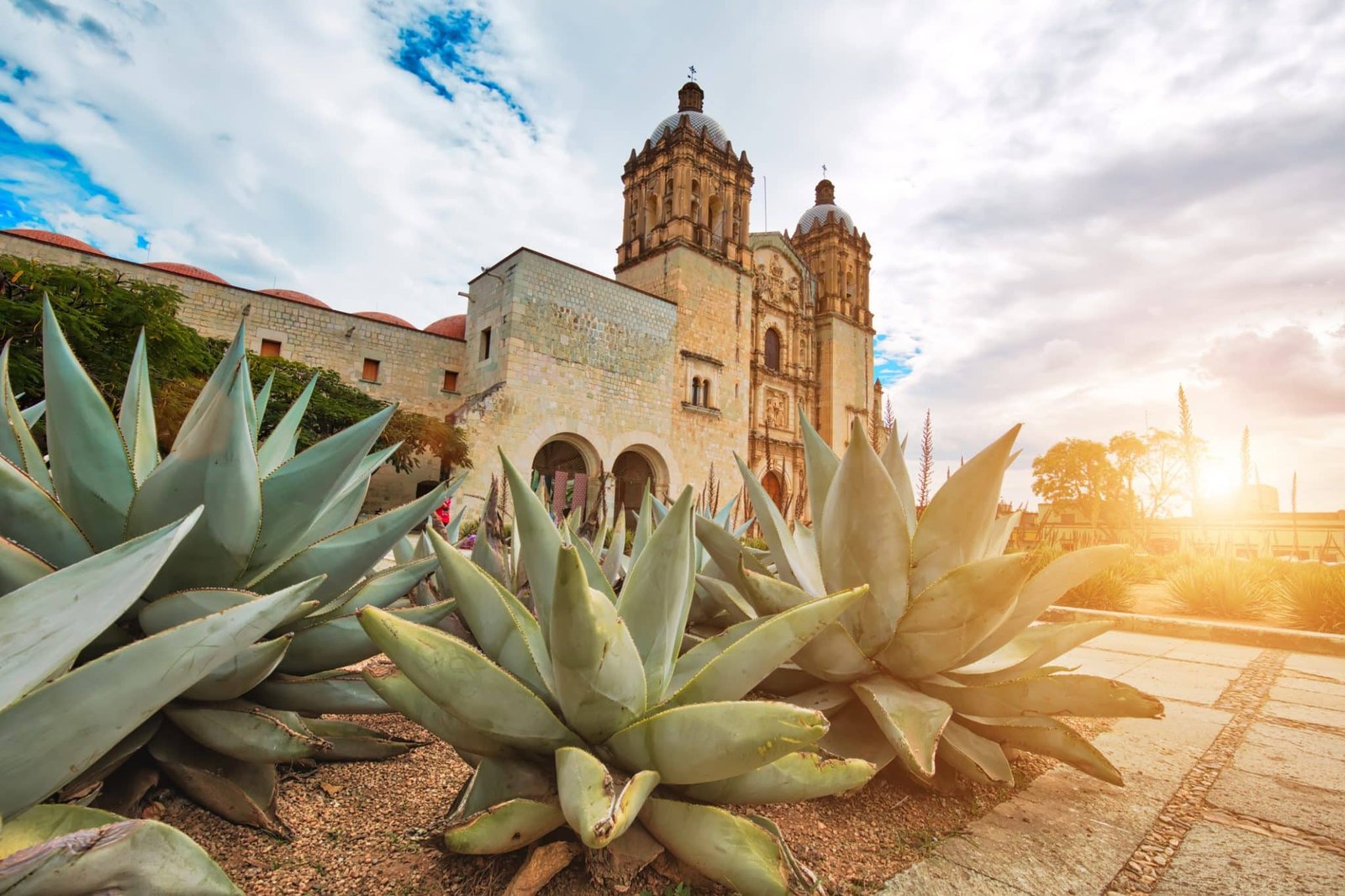20+ Punta Cana Safety Tips & Info Every Tourist Should Know!
|
Prefer listening over reading? We got you covered!
Getting your Trinity Audio player ready...
|
Punta Cana makes the list of favorite beach destinations year in and year out. And with reason: the dreamy coastline, luxurious all-inclusive resorts, and vivid nightlife check all the boxes for a splendid vacation.
This Caribbean paradise has also proved safe enough for millions of visitors over the years. However, it is not always 100% hassle-free.
And it’s always helpful to be aware of the issues that the Dominican Republic—as a tropical and poverty-stricken country—experiences.
While Punta Cana is one of the safest cities in the country, the tips listed below will help you avoid any potential (though unlikely) unpleasant situations.

21 Punta Cana Safety Tips Every Tourist Needs To Know
1. Drink Bottled Water Exclusively
While the Dominican government has been able to expand the water supply network in the last few years, drinking it could still be unsafe. The lack of institutional supervision of the water quality makes it untrustworthy.
So with that the case, we advise against drinking tap water. Avoid getting water in your mouth when showering too, and brush your teeth with bottled water. There are many bottled water brands in the Dominican Republic. Planeta Azul, Agua Crystal, and Dasani are the best and most favored ones.
Resorts and hotels use purified water when washing vegetables, cooking, and making ice and coffee. If this is not your hotel’s case, the staff has to let you know.
If you leave your resort, it’s best not to drink anything with ice in it since there is no guarantee it is made out of purified water.
It may seem mundane, but one of the top ways to guarantee your own health and safety in Punta Cana is to drink only bottled water.

2. Bug Repellent Is A Must
Mosquitoes in Punta Cana may carry diseases such as dengue, zika virus, chikungunya, and malaria.
They are more active at dawn and when it gets dark. To drive them away, make sure to use quality repellents and electric repellent devices in your room (Punta Cana has 110 volts outlets or 220 in some hotels).
Avoid wearing perfume since it attracts mosquitoes. If you are visiting a jungle, swamp, or lake area and the weather is not too hot for you, try to cover yourself with long-sleeved T-shirts and pants.
However, at least the risk of contracting the previously mentioned diseases in Punta Cana is extremely low. (Recommended: Dangerous Insects In The Dominican Republic You Could Meet!).
3. Get Vaccinated
Healthcare professionals suggest checking if all your vaccines are up to date when traveling to a tropical destination. Getting additional vaccines and boosters is a potentially good idea, even if you’re visiting a low-risk zone like Punta Cana.
Hepatitis A and tetanus vaccines are worth considering. Look into Hepatitis B, rabies, diphtheria, and typhoid fever vaccines as well.
4. Don’t Underestimate The Caribbean Sun
If you are used to a mild sun, you probably don’t think much about protecting against it. But, the sun in Punta Cana is strong. You need to take more rigorous care to avoid getting badly burnt and subsequently getting serious health issues.
First and foremost, always—without fail—wear sunscreen and reapply throughout the day. Not just any sunscreen, but a quality high SPF one. Wear a hat or a cap if you know you will spend many hours under the sun. Try not to overindulge in too many beers or cocktails as alcohol increases the risk of suffering heat stroke. Lastly, stay hydrated.

5. Pay Attention To What You Eat
Resorts and hotels have strict guidelines they must follow when handling food. So, eating there is safe.
However, when you step out of your hotel and encounter street vendors, it is a different story. The main food you should avoid is raw protein meals such as shellfish and other kinds of seafood. For example, ceviche is one of the most popular dishes in Punta Cana among both tourists and locals. It contains raw fish, like sushi. But it can put you at risk of getting ill.
If you happen to buy fruit from fruit kiosks, be sure to wash them one by one with drinking water. Once you finish doing that, you should also sanitize them. This will get rid of any dangerous bacteria and significantly decrease the risk of getting a stomach infection. Lastly, before eating fruit, peel it.
This also applies to fruit smoothies or juices. There is no way of knowing if the fruits were thoroughly cleaned, so it is best to make them yourself or buy them from a shop that is not on the street.
6. Driving
Both locals and tourists always advise foreign newcomers against driving in Punta Cana. Motorbikes come out of nowhere constantly, and car drivers can be aggressive and reckless when passing other vehicles and crossing intersections.
In addition to this, the street conditions in Punta Cana are not the best. There are places with brand new roads that are easier to drive through: Cap Cana, Punta Cana Village, and Veron. However, holes and bumps are not the biggest issues when it comes to driving – it’s mainly other drivers!
Still, it is best to leave the driving to an experienced Dominican. Having lived and worked there for their whole lives, they are used to the hectic traffic and know how to handle ugly situations. Plus, they know their way around.
If you decide to drive, you will have to figure out the road to take and pay attention to what is happening around you at the same time, which can be dangerous.
If you want to end your vacation in Punta Cana safe and sound, it’s always best to avoid driving.
7. Look Out For Adulterated Alcohol
There have been reports in the past of fatal intoxications due to the drinking of adulterated alcohol within different regions of the Dominican Republic, Punta Cana being one of them.
Similarly to the water issue, the lack of inspections and standards in the country has resulted in low quality alcohol, contaminated with methanol, which is later distributed. In this way, it ends up in restaurants, beach bars, and other shops where hundreds of people buy drinks.
In response to this alarming situation, the authorities rapidly took a series of measures. One of them is that industries that use methanol must add an unpleasant flavor and smell to it. So, if you feel something is off with your drink’s taste or scent put it down immediately.

8. Avoid Hurricane Season
Hurricane season in the Caribbean starts in early June and ends in late November. Locals state that it is very rare for hurricanes formed in other regions to reach Punta Cana, though.
Still, to be completely safe, it is best to visit Punta Cana outside hurricane season. The weather, because it is tropical, is pleasant all year round. The winter heat is more comfortable since it is not as suffocating as in summer.
So, if you would rather be safe than sorry, we recommend visiting Punta Cana’s idyllic beaches from December to June.
9. Stay Away From Motorbike Taxis
Motorbike taxis, known as motoconchos in the Dominican Republic, are not much cheaper than traditional taxis when you are a tourist.
The motorbikes are often in not-so-good a condition and tend to be unreliable. Some haven’t even got a helmet for you to put on.
Not to mention, as previously stated, Dominican streets are a bit crazy and you could be easily involved in a road accident. If you are in a car, you have a much greater chance of being unharmed. The price difference between a motorbike taxi and normal taxi is not worth putting your life at such a high risk.
10. Be Vigilant With Public Transportation
Buses – or guaguas – are affordable means of transportation. They are convenient if you don’t want to take a taxi or rent a car. But keep in mind that pickpocketers are the most active during rush hours.
If you have no option but to take the bus, remember to keep your valuables out of sight and well-stored in internal pockets, making them more difficult to steal.
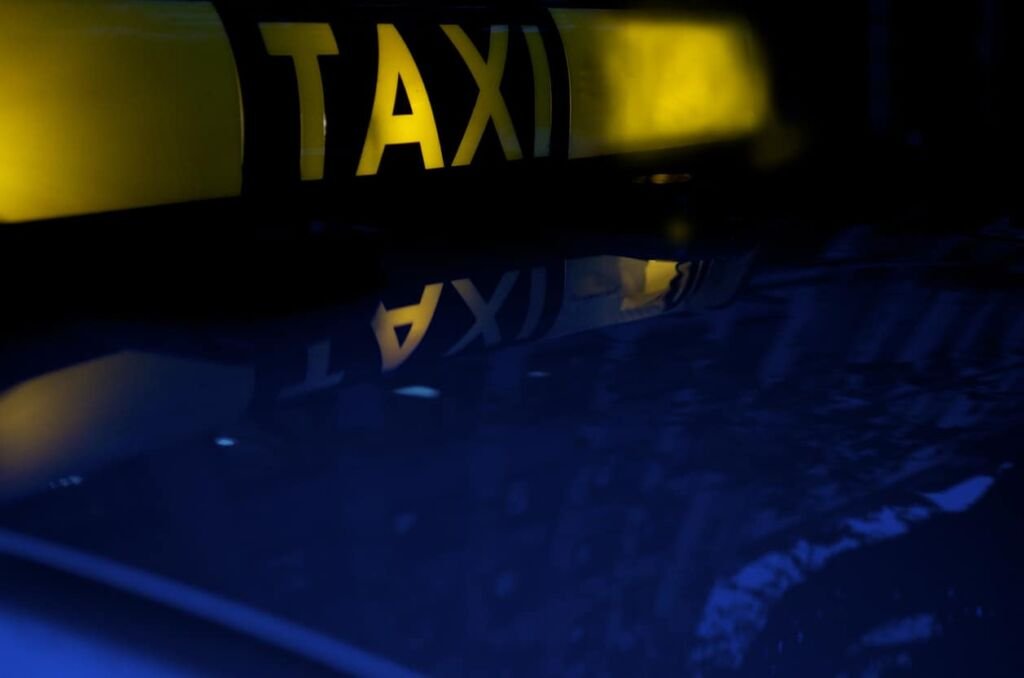
11. Beware Of Unlicensed Excursion Providers
Unlicensed tour operators are fairly easy to spot: they offer cheap packages and ask for advance payment.
There are two issues with these dishonest practices: firstly, they could just stand you up on the day of your tour. They basically steal from you. You pay them and they give you nothing in return.
Secondly, if they do show up, the transportation and equipment the activity requires may not meet basic security standards.
To avoid falling for this hustle, ask for a license or National Taxpayer Registrar number. If the provider fails to give it to you, start searching for other reputable agencies to ensure your safety. They will also give you the guarantee of a refund in case they are not able to carry the tour out.
We’ve written about this tourist hustle – and many other scams to watch out for – in our previous article on scams in the Dominican Republic.
12. Choose A Secure Accommodation
If you don’t want to stay at a luxury resort, you should always try and find a place to stay that is as safe as possible. Consider checking out apartments or villas that are inside gated communities.
Robbery and petty theft are unlikely to happen, but not impossible. Renting in gated communities will give you the tranquility of returning home at night safely and sleeping peacefully, knowing that the place is being surveilled.
Los Corales and Cocotal are areas with magnificent beaches that have affordable-but-nice accommodation options, such as studios, flats, and condos.
Avoid booking in areas that are near Hoyo de Friusa. It is considered an unsafe neighborhood, and it is best to stay away from it, especially if you are traveling alone.
When it comes to safety in Punta Cana, researching and selecting the right hotel is of utmost importance.

13. Use Reputable Transportation Services
When you get into a taxi or a transfer vehicle in any country, you trust a stranger to take you where you need to go safely.
If taking a random taxi from the street, you have no guarantee of the driver’s intentions. It is always preferable to call vehicles that work with popular, reputable companies to ensure your well-being.
Punta Cana’s best transportation services companies, rated by both locals and tourists, are Dios Guía Taxis, R.V. Private Tours and Taxi, Dominican Airport Transfers (DAT), and Transekur. Some of them even organize activities and excursions which you can check online.
14. Watch Out For Scams & Tourist Traps
As we have already written about, Punta Cana (and the rest of the Dominican Republic) is a scam-prone place. There are many types of hustles: transportation, accommodation, and shopping, among others.
However, on this occasion, we will explain those that involve petty theft: walking through the streets of any centrical or urban area, you may find an entertainer that performs some kind of act. The most common one is an interactive guessing game. Spectators gather around to watch the game and give the performer money to participate.
In a premeditated plan, another member of the crowd seizes the opportunity and silently steals from the clueless viewers.
To avoid this, stay away from public crowds like this and keep your valuables in a place that’s difficult to reach.
15. Learn How To Bargain
Bargaining is considered an art in all regions of the Dominican Republic. As a tourist, it saves you from losing a great deal of money to the buying of products that aren’t worth that much. However, to do it without disrespecting the vendors and causing any discrepancies, it is necessary to know the how-tos.
Learning the basics of the language is a must. Communicating effectively will make your bargaining session amicable and quick.
You also have to know when to stop. If you have convinced the vendor to lower the price by 50% of the original asking price, it is best to take it. Maybe you can try to get it down by 60%, but keep in mind that the vendors are just trying to do their job and earn money. Know that bargaining must be beneficial for both the seller and the buyer.

16. Use Credit Cards Mindfully
The number of credit card fraud and identity theft reports has increased in the last few years, making those issues of significant relevance.
Cash machines and shops are the main places where this type of crime is perpetuated. Thieves utilize different techniques when stealing your credit card information, but the one they use the most is skimming. Through different hacking strategies, they manage to find out your card number and, most importantly, your secret number. This allows them to do anything they want with your credit card: make purchases, use your identity, and sell your card information to third parties.
Using only cash to pay for everything in Punta Cana is the best alternative. However, if you have no choice but to use your card, be aware of your surroundings when doing so. Check if someone is looking at you while entering your number, and if you see something suspicious, notify the staff.
There are card holders made out of materials that block wireless signals. These can be lifesavers since skimming is often carried out through the eavesdropping of poorly protected transactions.
Keep close track of your credit card statement throughout your trip and when you get home. If you spot any strange charges you don’t recall paying for, contact your bank immediately to solve the issue.
17. Santo Domingo
Almost everyone that decides to venture out of their hotel in Punta Cana spends a day in Santo Domingo, the capital of the Dominican Republic.
While it is a big and fun metropolis and has a beautiful colonial area, it is more dangerous than the Punta Cana resort areas. Pickpocketing, armed robbery, and shootings have all been reported in the past.
Some neighborhoods are riskier than others. Walking through the city center is generally safe but it is best to avoid some of the following neighborhoods: La Puya, Los Guandules, La Ciénaga, Cristo Rey, Capotillo, and Villa Consuelo.
Many residents of these neighborhoods are honest working people. However, the difficulties they endure because of poverty force some of them to resort to criminal activities, which is why it is best to stick to other parts of the city if you visit it.

18. LGBTQ+ Travelers
Safety in Punta Cana is usually a big topic fo LGBTQ+ travelers, and unfortunately attitudes towards the LGBTQ+ community in Punta Cana and the Dominican Republic is quite conservative, stemming from the prevalence of Catholicism. For instance, same-sex marriages are not legal.
However, Punta Cana offers many hotels that welcome LGBTQ+ tourists without a problem. Some of them are Hard Rock Hotel Punta Cana, Westin Puntacana Resort & Club, The Grand Reserve At Paradisus Palma Real, and Eden Roc At Cap Cana.
Nightlife is also a possibility for LGBTQ+ folks: Imagine Punta Cana and Coco Bongo are two highly popular nightclubs where you will enjoy live DJs, delicious drinks, and intense dancing.
19. Punta Cana At Night
Like in every part of the world, the risk of being the victim of a crime in Punta Cana increases at night.
Walking through alleyways during the day is completely safe. But after the sun goes down, they might be a tad more deserted and poorly lit, so it is best to take another road. If an alleyway is your only option, avoid being completely alone. Either way, many police officers are looking out for you, so you should feel very secure.
There have been a few reports of tourists getting attacked on their way out of popular nightclubs. Some bus drivers have also left tourists far from their resort. However, these are two bad situations among millions of excellent reviews and experiences, so statistically, Punta Cana is a safe place to party.
Just arrange your transportation beforehand with one of the companies we suggested, and be aware of your surroundings when you head out. These two measures should ensure a great and safe night out.
There aren’t any specific streets that locals (whose opinion and input are the most accurate) consider more dangerous than the others. But again, avoiding slum neighborhoods and the streets boarding Hoyo de Friusa is a good idea.
20. Problems Inside The Resorts
Staying at an all-inclusive resort is the ultimate relaxation experience. They are the quintessential accommodation places in Punta Cana, and visitors tend to have nothing but excellent things to say about their stay.
Unfortunately, there have been reports about theft in rooms in five-star resorts located along the coastline. Although there have been only a few situations like this, keeping an eye out never hurt anyone.
The rooms always have a safe where you can put your valuables (cash, electronic devices, etcetera). You can create a personal code for those and then leave your room with peace of mind.
21. Water Sports
Punta Cana’s warm turquoise sea is ideal for a variety of recreational water sports such as snorkeling, scuba diving, surfing, jet skiing, paddle boarding, and flyboarding.
While you are certain to have the time of your life taking part in these thrilling activities, it is important to keep a few things in mind.
If you decide to visit Punta Cana during hurricane season, note that storms and dangerous sea conditions characterize the period of June to November. And if you notice the weather is off on your excursion day, it might be best to cancel or reschedule it – your own safety in Punta Cana often comes down to common sense decisions after all.
If you have drunk a few mojitos or are under the influence of other types of substances, don’t go in the water. The dizziness, disorientation, nausea, and impulsiveness are dangerous when taking part in physically demanding activities.
Swimming without any professionals or equipment near coral reefs, cliffs, and stones can be hazardous. If a strong wave comes or you get caught in a riptide, you could get badly injured. Stay within safe grounds, where you can bathe comfortably.
Check if any tour you’re on meets safety standards. The presence of a lifeguard is also vital in case something goes wrong. Last but not least, make sure your insurance covers adventure and water sports, and medical repatriation.
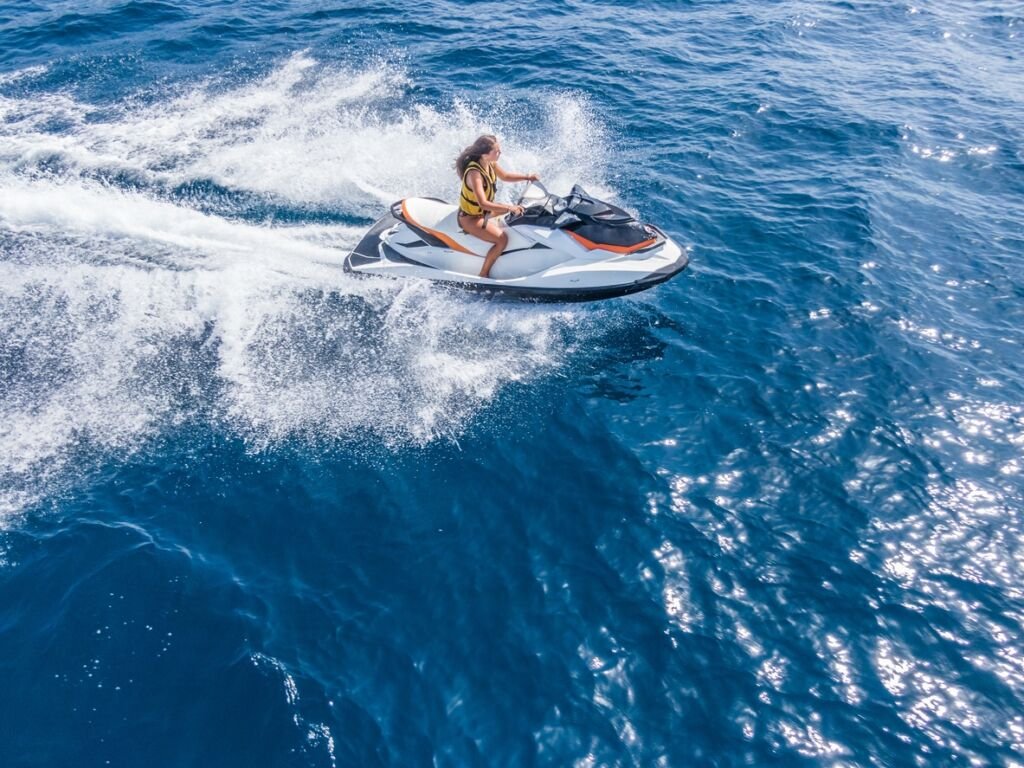
Safety In Punta Cana: Our Final Thoughts
It is worth saying that the situations we mentioned above very rarely take place. Punta Cana, with one of the lowest crime indexes in the Caribbean, remains among the safest towns in the Dominican Republic.
There is no reason to worry during your stay in Punta Cana. And sadly, theft and scams happen all around the world. Just take the same safety measures you would take in any foreign tropical country and you will be just fine.
Don’t let these issues put you off from visiting this treasure of a place, meeting the welcoming locals, and enjoying the fresh flavorful cuisine!
